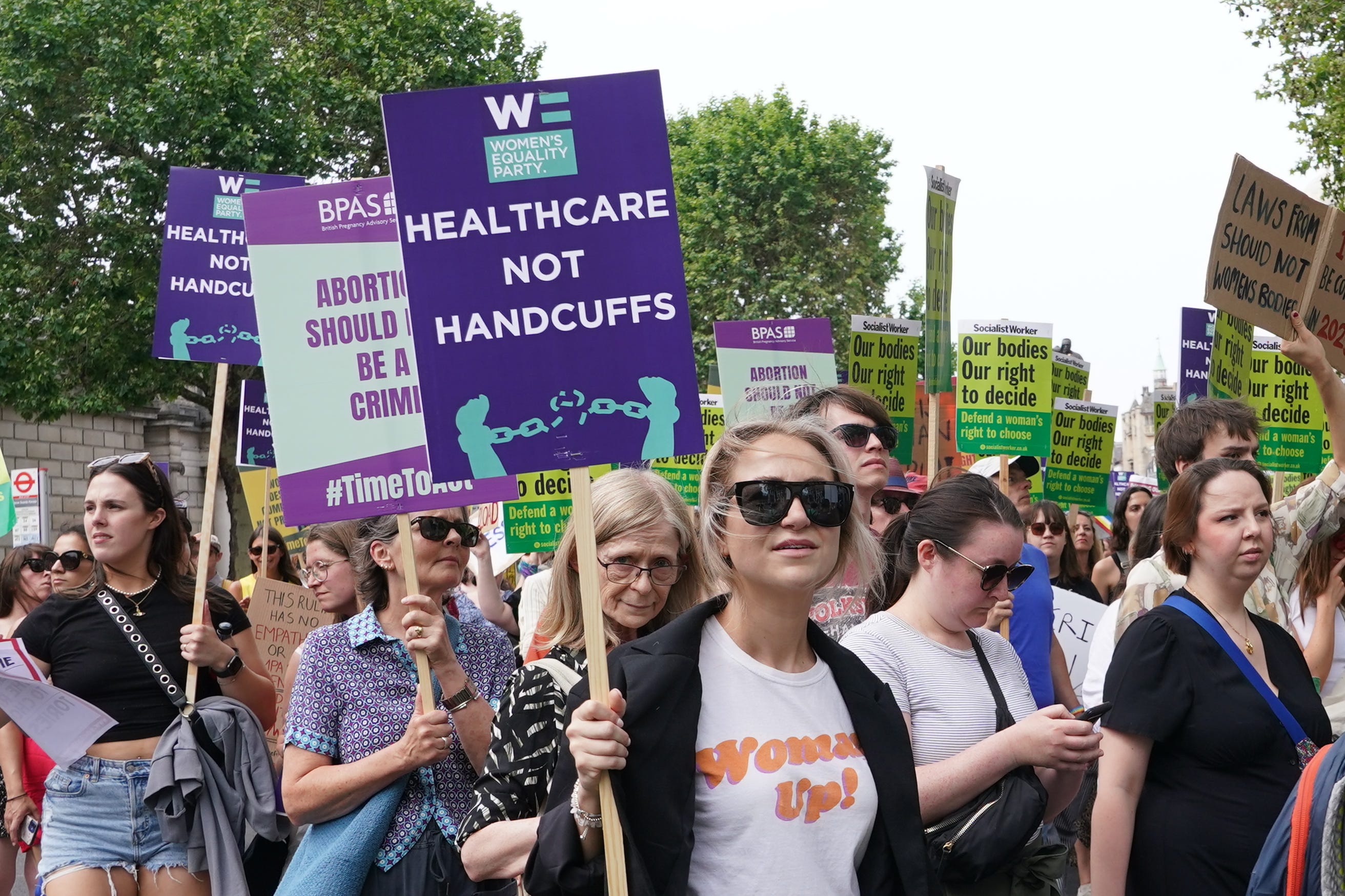Jailing women for abortion-related crimes ‘unlikely to be just outcome’ – court
The Court of Appeal gave its reasons for reducing the sentence of Carla Foster, who was originally jailed for procuring a late abortion.

Sending women to prison for abortion-related offences is “unlikely” to be a “just outcome”, the Court of Appeal has said.
In a ruling on Wednesday, three judges gave their reasons for reducing the sentence of Carla Foster, who was previously jailed after she admitted illegally procuring an abortion when she was between 32 and 34 weeks pregnant.
Foster had previously been handed a 28-month extended sentence, but appeal judges lowered her prison term to 14 months and suspended it at a hearing in July.
Dame Victoria Sharp, sitting with Lord Justice Holroyde and Mrs Justice Lambert, had said the case “calls for compassion, not punishment” and that “no useful purpose is served by detaining Ms Foster in custody”.
In the aftermath of the stillbirth, she was traumatised, and as the judge put it, wracked by guilt and depressed
In the 17-page ruling detailing their reasons for reducing Foster’s sentence, the judges noted a similar case of a woman convicted of administering poison with intent to procure a miscarriage where the sentence had been lowered on appeal.
Dame Victoria said: “We consider that in cases of this nature, there will often be substantial personal mitigation to balance against the seriousness of the charge; and that an immediate custodial sentence in such cases is unlikely to provide a just outcome.
“And this was precisely the case here.”
The judges said the sentencing judge – Mr Justice Pepperall – had wrongly calculated the sentence before factoring in Foster’s mitigation and that it was too high.
Dame Victoria said that while the 45-year-old had not been suffering from a serious mental illness at the time of the offence, “there was evidence of an emotionally unstable personality and there is no doubt that she suffered emotional turmoil throughout”.
She continued: “Ms Foster made admissions at any early stage, and it is doubtful she would have been prosecuted had she not done so.
“In the aftermath of the stillbirth, she was traumatised, and as the judge put it, wracked by guilt and depressed.”
The Court of Appeal in London previously heard Foster had spent 35 days in prison and was denied contact with her three children, one of whom is autistic.
Dame Victoria said: “By the time of the hearing before us, it was obvious that custody had had a severely detrimental effect on Ms Foster and on her family.”
Foster was initially charged with child destruction and pleaded not guilty, before admitting an alternative charge of administering drugs or using instruments to procure abortion.
At her sentencing in June, the court heard she was sent the drugs by the British Pregnancy Advisory Service (BPAS) after she called them during lockdown in 2020 and lied about how far along in her pregnancy she was.
Sentencing Foster at Stoke-on-Trent Crown Court, Mr Justice Pepperall said it was an emotive case and said it was made more “tragic” because she did not plead guilty earlier.
The British Pregnancy Advisory Service welcomed the appeal court’s ruling and called for legal reform to ensure “no more women are ever threatened with jail”.
Clare Murphy, chief executive of the organisation, said: “As an abortion provider, we know that jailing women for abortion is never a just outcome – we are pleased to see that the Court of Appeal agrees.
“However, every woman who ends up with a suspended sentence or other punishment is a woman who has spent years under investigation by the police, years of being unable to move on from a decision they made at an incredibly difficult time, and years of wasted public money on something which is never in the public interest.
“The only just way forward is to reform abortion law so no more women are ever threatened with jail.”
Gender equality and women’s rights organisation the Fawcett Society also called for changes in the law, with its chief executive, Jemima Olchawski, saying: “It’s beyond belief that our legal system allowed a woman to be jailed for taking abortion pills. It can never be in the public interest to criminalise women in this way.
“We need to see urgent changes to our legal system to ensure no other woman falls foul of a law that pre-dates suffrage. Our system needs urgent change and we echo the calls from today for compassion not punishment.”
